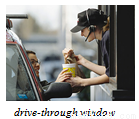题目内容
假如你是李华,是某中学高一的新生。请你给以前的好朋友小明写封信。介绍你现在各方面的情况。信中包括以下内容:
1.学校环境优美,有一个很大的操场,树木成荫。
2.老师对我们学习上要求严格,生活中很友好,关心同学。
3.身边的同学都很优秀,很勤奋。彼此相处融洽。
4.高中生活充满压力,但是在老师的帮助下,我充满信心,一定会不断取得进步。
注意:1. 内容应包括以上要点,可以适当发挥,增加细节,以使文章连贯;
2. 开头已给出,但不计入总词数; 词数:100左右。
Dear Xiao Ming,
I’m Li Hua. I’m writing to tell you my lifestyle in the new school.
_______________________________________________________________________________
_______________________________________________________________________________
_______________________________________________________________________________
_______________________________________________________________________________
_______________________________________________________________________________
_______________________________________________________________________________
_______________________________________________________________________________
_______________________________________________________________________________
_______________________________________________________________________________
Yours,
Li Hua
 优百分课时互动系列答案
优百分课时互动系列答案

